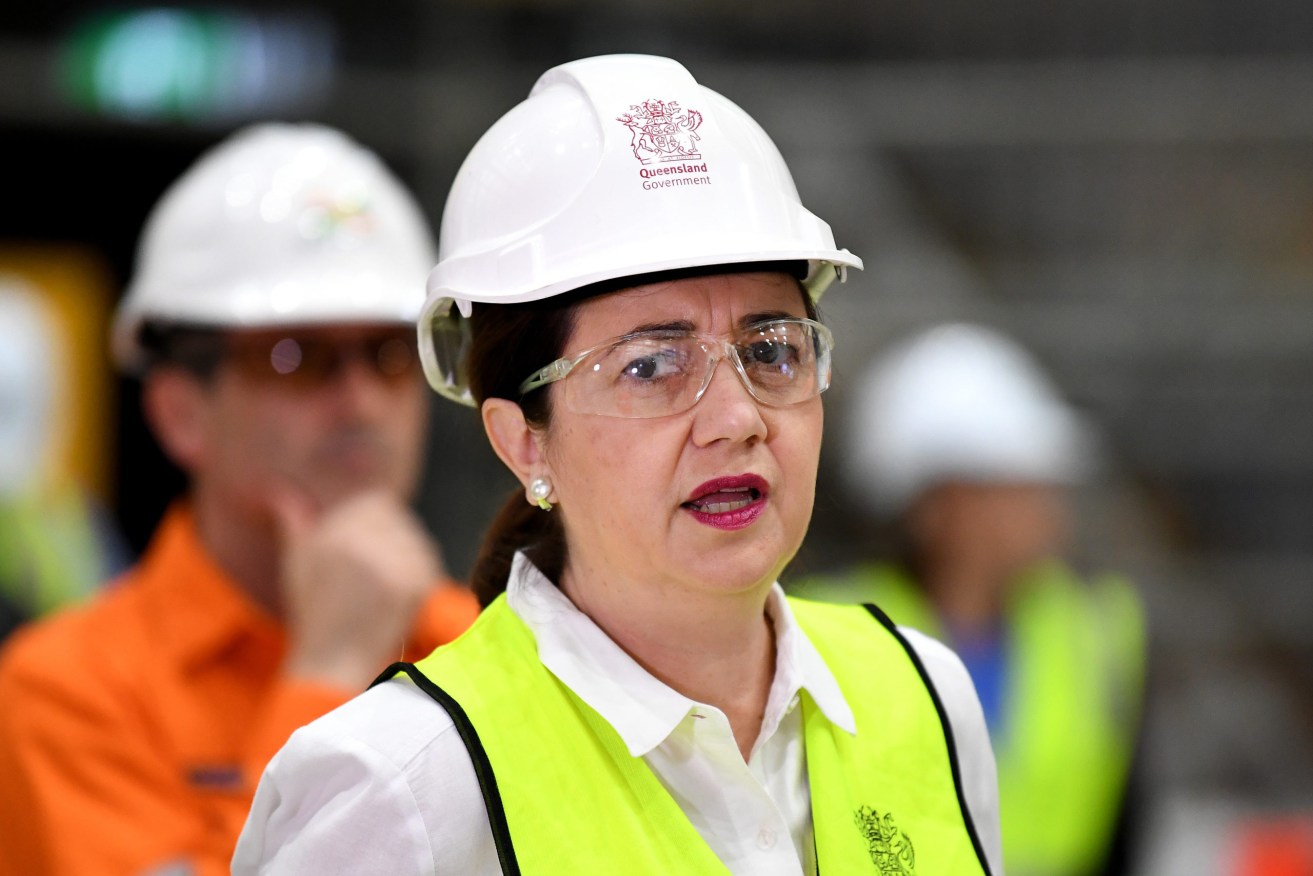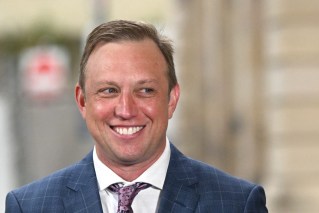Palaszczuk is popular but has an opportunity to be bold
A fixed four year term gives Premier Annastacia Palaszczuk and her Labor government time to implement major reforms, writes Dennis Atkins.


Premier Annastacia Palaszczuk was kept at arm's lengths from the new politicians' pay rise. (Photo: AAP Image/Dan Peled)
What a difference a year makes is a cliche never more appropriate than when applied to anything occurring during 2020.
The Queensland Labor state politicians who gathered last week at the Novotel resort at Twin Waters, just to the north of the Maroochy River mouth on the Sunshine Coast, are starkly aware of just how time can turn a tide.
Most of these 52 ALP members were at the January 2020 Caucus get together at Springbrook in the Gold Coast Hinterland and things couldn’t have been more different.
Then many – although not quite all – of those gathered believed they would lose the election scheduled for the end of October. Another big difference was that Jackie Trad was still the party’s deputy leader and second in command in Parliament.
Now they have just under four years ahead of them with as much political goodwill as any premier has held since Peter Beattie’s famous “three-Pete” victory in 2006.
Premier Annastacia Palaszczuk has goodwill as strong as Beattie’s ever was and has the potential to be even more enduring. She could fulfil the private boast of her father Henry who has told friends he thinks his daughter can be as popular and enduring as former Nationals premier Joh Bjelke Petersen. Presumably he believes she’ll leave on better terms.
Palaszczuk has the world before her – a brand new four year term with solid support in Cabinet, Parliament, and the party. However, Labor will go to the next election looking for another four year term after holding power in Queensland for 40 out of the past 44 years. It’s a big test of longevity and voter patience.
We do not have any sense of the vision Palaszczuk and Labor have for the state, despite protests this agenda was all there in election pledges and the post-poll Budget.
If that’s all there is it’s small-bore stuff, best summed up as business-as-usual.
A mystery in how public policy and administration are handled in Queensland is why Labor has not revisited the Office of Cabinet, the central coordinating body Wayne Goss created 40 years ago, in mid-1991.
One of Queensland’s top public policy academics, Griffith University’s Anne Tiernan, wonders if Palaszczuk is going to seize the opportunity to go big in spending some political capital and setting ambitious goals.
“Now and for the next six months at least, Annastacia Palaszczuk has a unique opportunity to leverage the popularity and trust that she has earned from Queenslanders to set an ambitious agenda and to chart her government’s direction,” says Tiernan, who’s also an astute observer of the state’s politics.
“Will Palaszczuk seize the opportunity to deliver jobs, growth, opportunity and economic recovery for Queenslanders, as she has promised? Or will she continue her cautious approach to governing? Her capacity to demand discipline and focus from her cabinet has and will never be greater. This is as good as it gets.”
Another Queensland academic making a mark as an analyst and commentator, Queensland University’s Chris Salisbury, finds the idea of reviving the Cabinet office an interesting one.
“It could be a useful mechanism to focus the executive’s agenda settings over this four-year term, given Palaszczuk and senior ministers have struggled (or been reluctant) to articulate a narrative of overarching strategy while in office,” he says.
“It could also help coordinate the government’s policy responses, especially in diverse areas of pressing need due to the pandemic.”
Salisbury is also positive about an idea that’s floating around the ridges of state government – a big, overarching “Longevity and Caring Ministry” which could cover health and allied services, pointing to the “increased burdens and pressures the pandemic has brought upon our health and hospital systems”.
Salisbury says the experience of the last 12 months has opened the eyes of many policy makers because of the interconnected nature of challenges and responses, and how they have impacted health, wellbeing, safety and general livelihoods.
“Some form of integrated and coordinated management of the various organs of service delivery in these diverse areas would presumably be beneficial,” says Salisbury.
“Additionally, such a broadened portfolio arrangement might be well placed to respond ‘holistically’ when, for instance, voluntary assisted dying laws presumably pass this year, or if reforms out of the aged care royal commission potentially devolve some responsibility to the states.”
Backing the notion of having a discrete ministry for older Queenslanders and their needs and aspirations is recent economic modelling which points to about 60 percent of new jobs over the coming decade originating in this general area.
Another suggestion being discussed in some corners of the government is to have a big “economic recovery” portfolio – something that might be a reworking of the responsibilities of Deputy Premier Steven Miles who has the odds and sods ministry covering state development, infrastructure, local government and planning.
All of this is vital stuff for running the state but if it was meshed as a joined up “build back better” post-pandemic portfolio it might be more receptive to beyond the horizon ambitions.
A revived Cabinet Office could oversee this kind of reform agenda and having a proven administrator like Miles would give it the impetus needed.
Some insiders say Palaszczuk is not interested in this kind of ambitious thinking or doubts she has sufficient sway over a party and Caucus that still demands factional fealty at every turn.
The questions are, if not now, when, and if not, why not?












